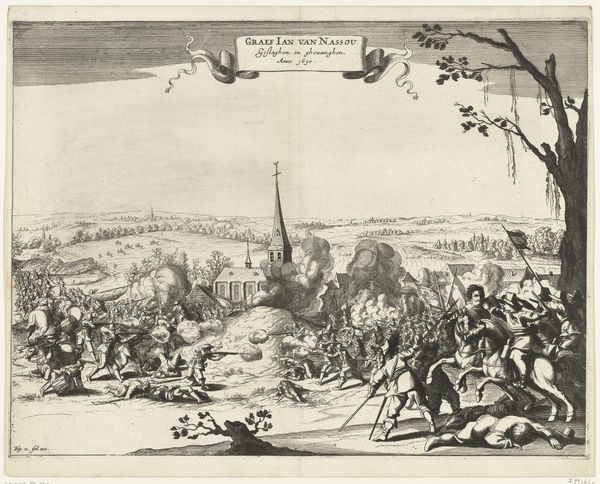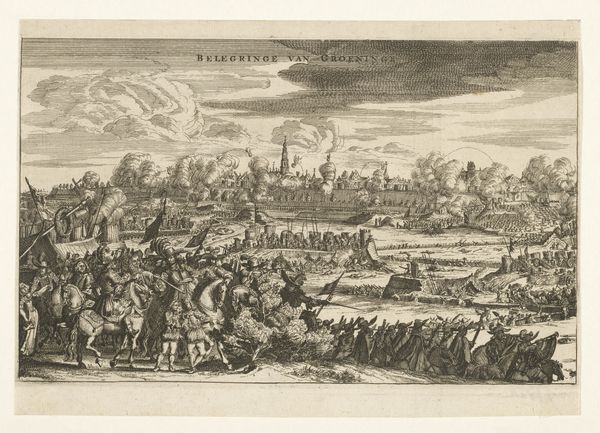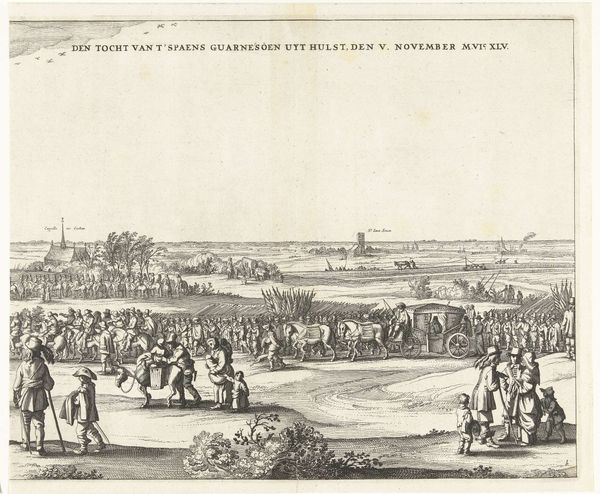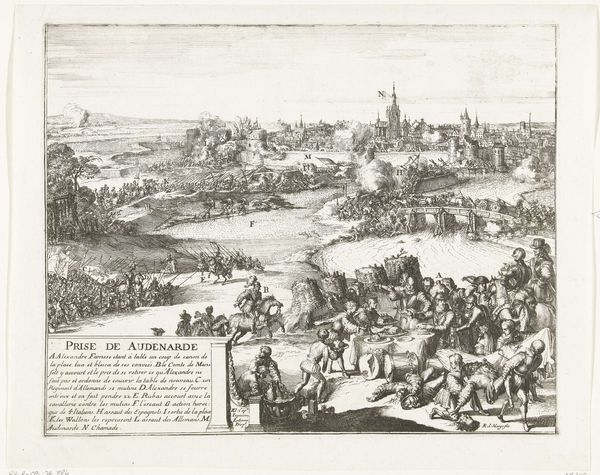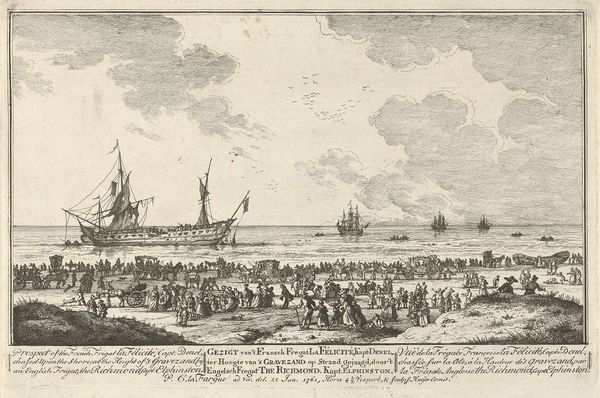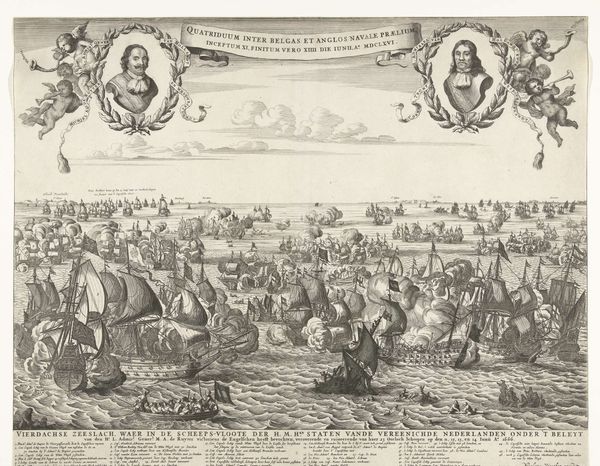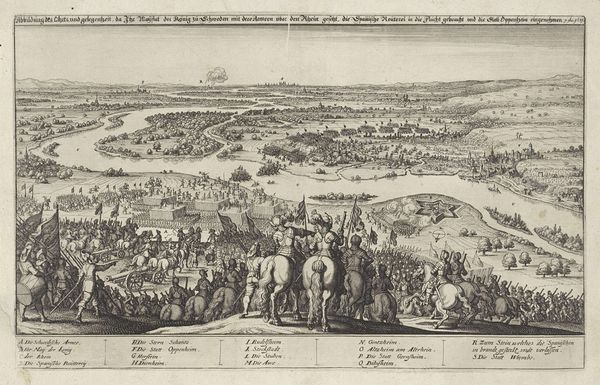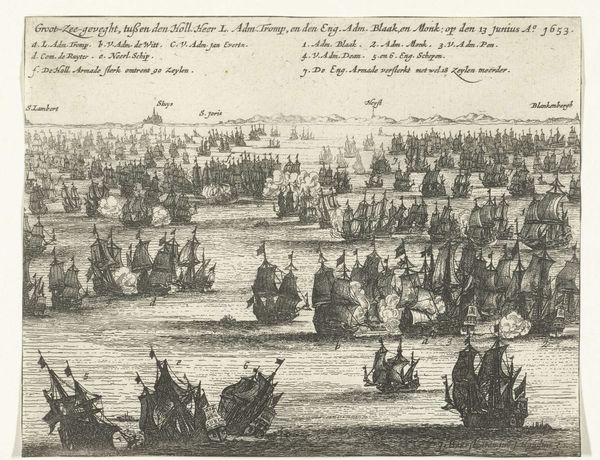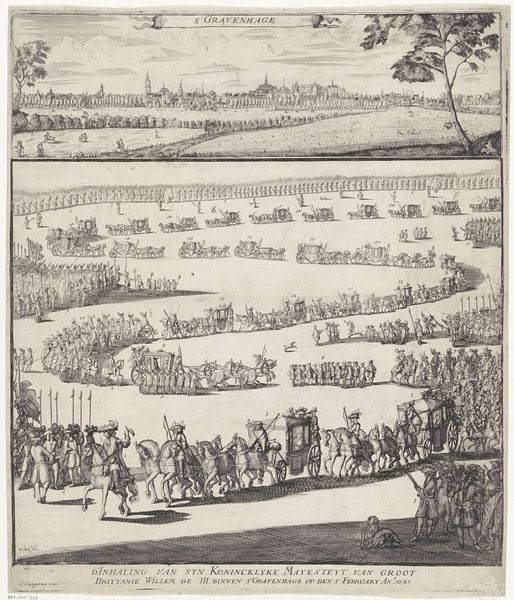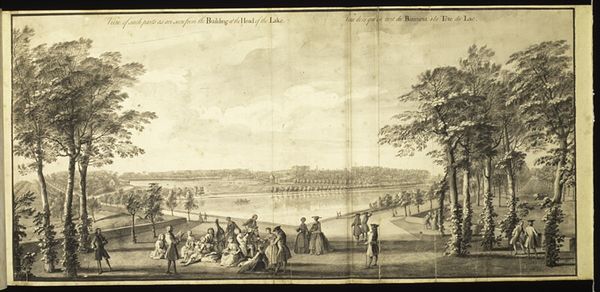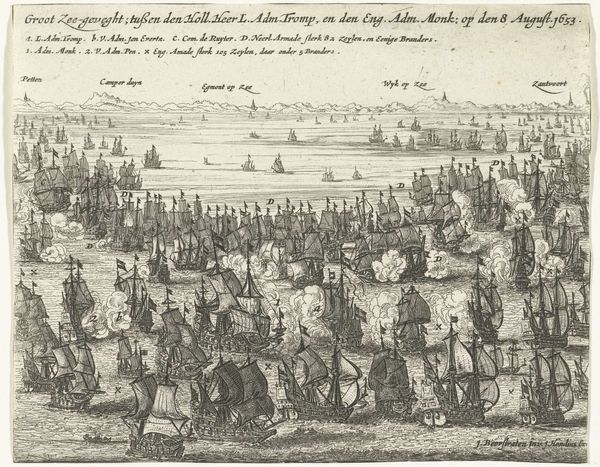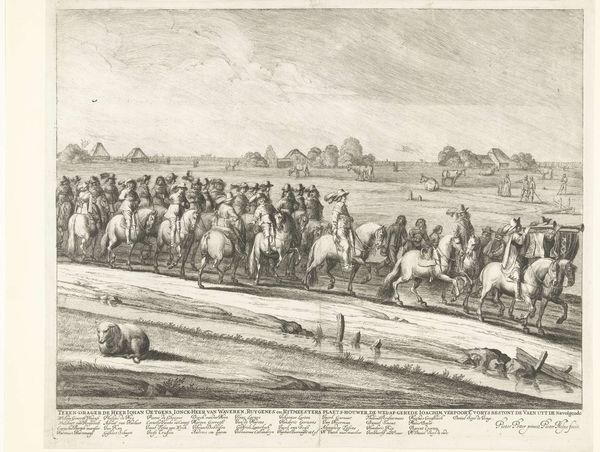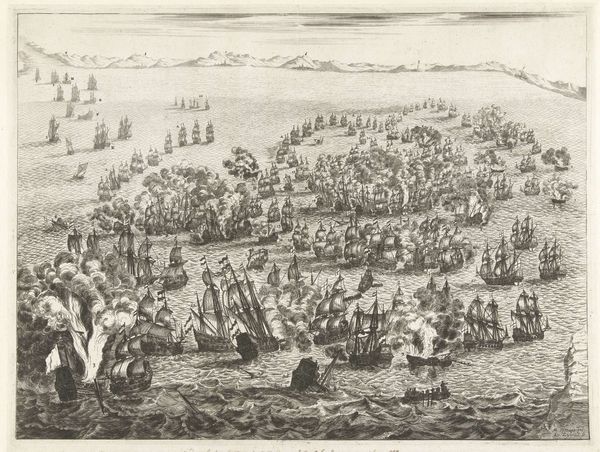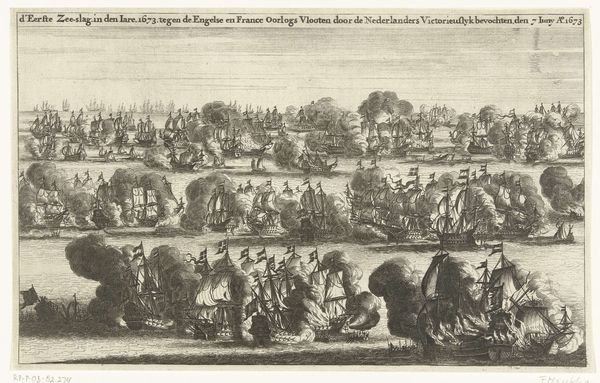
Uittocht van het Spaanse garnizoen uit Hulst (blad c), 1645 1645
0:00
0:00
claesjanszvisscher
Rijksmuseum
print, engraving
#
dutch-golden-age
# print
#
landscape
#
history-painting
#
engraving
Dimensions: height 238 mm, width 292 mm
Copyright: Rijks Museum: Open Domain
Claes Jansz. Visscher etched "Departure of the Spanish Garrison from Hulst" in 1645, and it shows a procession laden with symbolism. Observe the long line of soldiers leaving the city. Processions are not just movements; they're potent displays of power, a motif stretching back to triumphal entries in ancient Rome. Even the act of leaving becomes a statement, a calculated performance of departure. Note how the windmills in the background stand in stark contrast to the figures in the foreground. The windmill motif, ever-present in Dutch landscapes, signifies the triumph of ingenuity, a subtle jab at the defeated Spanish forces. It is as if the land itself—with its life-giving windmills— rejects the foreign presence. Consider the image as a stage where collective memory and national identity meet. The psychological impact lies in the assertion of freedom and the land reclaimed. It is a dance of victory, etched in lines that speak volumes about a people’s will.
Comments
No comments
Be the first to comment and join the conversation on the ultimate creative platform.
